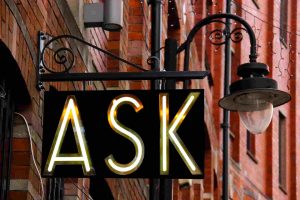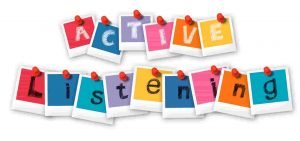Have you ever had a job interview in Germany? I wrote about how I got my permanent full time job in Germany without speaking German in another post. It is not easy to find an English speaking job, but it is possible. So, in this post, I am going to share with you the interview process in Germany, and also some tips on how you can increase your chances of getting a job.
After I graduated from my master degree in Germany, I applied for a graduate position at an international company. I was invited to an assessment center, which lasted for one and a half day. Please keep in mind that the interview process can be different in every company. I am just sharing with you my experience. You may experience a different interview process depending on the companies and positions that you apply for.

Assessment center
Day One: Get to know the company + Networking chance
I was invited to the company for half a day in the afternoon. The HR person told me before that the interview would be conducted in English. There were 10 candidates in total, including me. We chatted a bit with each other at the reception, and I figured out that 8 of them were German. Only one girl there was non-German, but she could speak German as well. So, I was the only candidate there, who was not able to speak German. That was a bit scary for me.
We were invited to sit in a big conference room. Each of us did a brief self-introduction. Then, someone from HR did a presentation about the company and the position that they were hiring. In the end, there was a Q&A section. We were allowed to ask any questions. Someone asked, “How many of us are you going to hire for this position?”
“One.” was the answer from HR. I still remember that I saw the depressed faces on all the candidates, once we heard this answer. I was feeling the same as well. One out of ten! That was a 10% chance of getting hired. How could that be me? The chance was just so low that we were immediately demotivated.
HAPPY HOUR NETWORKING SESSION
Following the presentation was a casual networking session. We were invited to have a happy hour gathering in the company’s canteen, together with HR and some senior managers. There were drinks and snacks. This was the chance for us to network with each other in a casual setup, before the real interview which would take place on the following day.
This was not really part of the interview. It was more like a “get to know each other” before the real interview. We chatted with each other casually about anything, like food, travel, study, etc. As I mentioned before, every candidate was able to speak German (except me). So, in this kind of casual session, everyone was talking in German. This put me into a really bad situation, because I was not able to understand and to participate in the conversation.

I WAS FRUSTRATED ALREADY AFTER DAY ONE
I tried very hard to capture some German words that I knew, when they were talking. For example, when I heard the word “Hund” in the sentence, then I supposed they were talking about dog. I jumped into the conversation and talked something about dog as well. I talked in English and hoped to switch the conversation language from German to English. That worked several times. But after a while, they started to talk in German again.
After my Day One interview, I was already very frustrated. I felt like there was no way I would get this job. I thought I must have given a bad impression during this happy hour session. Because I showed that I could not speak German, and I could not really network with anyone there. Even though English was the official interview language, I did not feel good about how my Day One interview went.
Day Two: The real interview
On the next whole day, we started the real interview. The interview consisted of the below five parts:
PRESENTATION
Some weeks before this interview, we were told that we had to do a presentation during the interview. So we had to prepare a PowerPoint presentation for 15 minutes. We could choose any topic we wanted.
The presentation was the first part of the Day Two interview. Every candidate had to present, followed by a Q&A session at the end of each presentation. The audience included all the candidates, HR, hiring managers and other senior managers from the company. Since we were 10 candidates, it took a while until everyone was finished.

GROUP WORK
After the presentation, the second part of the interview was group work. We were divided into three groups. Each group was given a task to fulfil: to find a solution for a question and present the solution after 30 minutes.
For our group, everyone was given a piece of paper, with some information on it. We were not allowed to show each other directly what was in our paper. The information on the paper included words that were difficult to understand.
For example, the question for a group maybe something like: “How many XXX do we need to use in the production process in order to make YYY?”
One paper might state: “AAA is a combination of two BBB plus three CCC.”
Another paper might state: “To make YYY, we need to use one AAA.”
The last paper might state: “XXX is four BBB and six CCC.”
The real group work was more complicated than the above example. But this was basically the concept. Since we were not allowed to show each other directly what was stated in our paper, it was not easy to solve the question. And we had to work under time pressure and present the solution after 30 minutes.

HR INTERVIEW
This was an individual interview with a HR person. Most of the time, HR people do not have the technical knowledge for the hiring position. But very often, candidates would need to go through HR interview as a first step to see if the candidates fit to the company culture and the position.
For me, I found HR interviews quite easy in general. You can prepare for these typical questions beforehand like:
“Why do you apply for this position?”
“What is your strength and weakness?”
For this interview, the HR person also asked me:
“What do you think about your presentation just now?”
“Do you think you need to improve anything in your presentation?”

TECHNICAL INTERVIEW
This was an individual interview with some managers in the field. They asked me technical questions regarding the position that I applied. To answer these questions, I had to use my knowledge from my study, my previous work experiences, and some common sense and creativity.

INTERVIEW WITH HIRING MANAGER
This was an individual interview with the hiring manager. This was the manager whom I would need to work with, if I got the job. There were general questions, and also technical questions. Basically it was up to the hiring manager, what he wanted to ask me.
Since he would need to work with me if I got the job, he wanted to make sure that I was the right person to hire. He asked about my background, my study, my previous work experiences, etc. He also asked me about my German level and what I planned to do to improve my German. I had to convince him that I would learn German fast.

Result
Finally, the interview was over. I was relieved. It was quite an overwhelming day. I think I did well in the interview. However, there were also some other good people and it was only 10% chance to get hired. After two days, the HR informed me by phone that I got the offer. I was crying out from happiness!

Here are some of the ways how I prepared for this interview:
(1) Read the website of the company and the job description
You should read the company’s website and try to understand the business as much as you can. Read the job description carefully again to understand the position. In the job description, they normally state the requirements. Think about how you can meet each of these requirements there. It is very likely that they will ask you in the interview: “Why should we hire you?” You need to be able to convince them why. Give example how you fit to the requirements.

(2) Prepare questions before going to the interview
At the end of almost every interview, the interviewer will ask you, if you have any questions. It is always good to ask some good and relevant questions. It shows that you are interested in the company and the job. You can already prepare some questions beforehand. For example, from reading the company’s website and the job description, you can probably think of some questions there.

(3) Listen carefully when other people are talking
This is very important because it shows that you are interested. When you listen carefully, you may also think of relevant questions to ask later on. For example, during the presentation part, I listened carefully to the other candidates when they were presenting. This allowed me to think of questions to ask them during their Q&A session. When I asked good and relevant question, it showed the others that I paid attention and could think critically.

(4) Do not dominate in group work
During group work, you are being assessed how you solve a problem and how you work with other people. It is tempting to become the focus and dominate in the conversation. In reality, the interviewers do not prefer someone who is too dominating, or someone who does not speak up at all. Being too dominating shows that you may not want to listen to other people’s opinions, or you cannot work smoothly with the others. Instead, you should mention your points, and give other people their chance to express their opinions as well.
If someone is not speaking up, you may even invite him to talk. Simply ask him what he thinks or if he agrees with the decision. You may leave a good impression to the interviewers by doing this, as it shows that you care about other people when you work with them.

(5) Volunteer yourself to be one of the first to present
I can give you one example during the presentation part of my interview. The HR asked all of us: “Who would like to go first?” I think the best is to be the first or the second person to present. Why? Imagine if you were the interviewer, you would have to listen to ten presentations for at least 15 minutes each. How long is an average person’s attention span? Would you be as concentrated when listening to the 10th presentation, comparing to the first two presentations?
I know it is always a bit scary to be the first one. And I was not the first one. I observed during the first presentation, to see how it went, how the interviewers reacted, what were the general questions in Q&A, etc. Then, I volunteered to be the second one, before everybody got tired of listening.

(6) Stand out from the crowd
During the presentation part of the interview, every candidate could choose any topic they wanted to present. As I expected before, everybody chose to present a casual topic. For example, almost half of the candidates presented about their travel experience.
I was the only exception. I chose a topic, which I could show some statistics. Why? Because I know that if I work in a company, I am not going to present about my travel experience. It is likely that I am going to present something more technical. I am probably going to present with graphs and numbers. I wanted to take this chance to show the interviewers my analytical skills, on top of my presentation skills. Besides, I chose a topic which was completely different from any others, which stood out from the crowd.
The topic I chose was about the real estate situation in Hong Kong. It took me a long time to prepare for the slides, as I really did research and compared house prices in Hong Kong versus other cities. I also had backup slides which showed more statistics and the sources of my research.

So, these are some tips from my side based on my interview experience. Keep in mind that the interview format and style can be different in every company. I am just trying to share my own experience, which may hopefully help you.
Did you have any interview in Germany? What are your interview experiences? Leave a comment below and let me know!

No comments:
Post a Comment